
Are you using non-toxic cookware? This may be an area that you've missed when addressing the toxin load in your environment. You'd probably switched to non-toxic beauty, non-toxic body sunscreen, non-toxic facial sunscreen, and cleaning products.
Cooking should be enjoyable and something that produces a healthy meal for you and your loved ones. However, when you use pots, pans, and baking sheets coated in poisonous non-stick substances, aluminum, or plastic, things can take a turn for the worst rather quickly.
Swapping out your cookware for non-toxic options is one of The Basics of Building a Nutrient-Dense Kitchen.
You see, over time, substances like aluminum can build up in your system and cause health problems. When non-stick coatings or aluminum is heated, it can leach into your food (1). When you think you’re getting a healthy meal of lean meats and veggies, you’re also consuming a not-so-healthy dose of chemicals caused by your cookware (2). Yikes!
Don’t worry. There are pots and pans out there that are made with non-toxic materials that won’t make you sick. Let’s take a look at what’s available, shall we?
Non-Toxic Cookware Options...Mostly
We’ve found some really good options in terms of safety when searching for non-toxic cookware. However, nothing is completely foolproof. Some workarounds in the kitchen can help you out, though. Forgoing traditional non-stick pans and not cooking at super high temperatures can essentially keep your cookware safe to use. The same rules hold for bakeware.
The key is being mindful of the type of cookware you are using and how you are cooking with it.
Non-Stick Ceramic
Normally, anything with the word “non-stick” in it makes us cringe. Non-stick coatings are typically loaded with poisons that are released into your food during the cooking process. Generally, it is not a wise idea to cook with pots and pans that are coated with the stuff.
However, new developments are happening in the world of ceramic non-stick cookware and bakeware, and a company called The Always Pan has designed a 16-piece set that uses a PTFE and PFAS type of non-stick coating.
The pans are made from aluminum, but due to the non-toxic coating, none of it will leach into your food providing that the cookware remains scratch-free and well taken of.
Shop Ceramic Cookware on Amazon


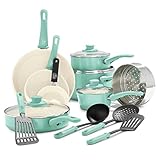
Cast Iron
It was once said that silver hair means wisdom, and we think this sentiment couldn’t be truer. The older generation seems to swear by cast iron cookware and for a good reason! Back in the day, folks didn’t have to worry about all of this aluminum and non-stick malarkey because it didn’t exist. They used cast iron.
Not only is cast iron safe for cooking at high temperatures, but it is insanely versatile. You can use it on the stovetop, in the oven, and even over a campfire.
The only downside to cast iron cookware is that there is a knack to getting used to how to care for it. You must season it with oil, which is a process all in itself, and learn how to keep it clean without using water, soap, or abrasive scrubbers.
However, once you get a good grip on how to use and care for your cast iron cookware, it is smooth sailing from there on out. Lodge is a great brand of cast-iron cookware, and you can even purchase the pots and pans pre-seasoned.
Shop Cast Iron Cookware on Amazon
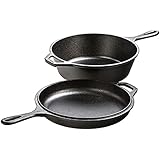


Don't Forget Bakeware
It’s not only your range top cookware that you need to be selective about but also your bakeware. Dishes that go into the oven still reach high temperatures and can cause harmful substances, should they be coated with them, to make their way into your baked goods. Nobody wants to eat a casserole loaded with lead or other crazy substances that should not be allowed in our dishes. Thanks FDA! (Insert eyeroll.)
Stoneware is an excellent option. It comes in roasting pans, cookie sheets, muffin tins, bread pans, etc. Some folks claim it is a bit cumbersome to clean, but the alternative is non-toxic food that tastes great and is cooked evenly.
An excellent brand to try is Pampered Chef.
Good Old Glassware
You can’t go wrong with glass if it is made in the USA. We do not recommend picking up a glass cooking pot from your local dollar store because glass produced in a country like China can contain lead.
A great and nostalgic, brand that we like to use is Pyrex. This type of glassware has been around for decades and comes in many different styles. You can boil water, cook a casserole, and so much more using glassware and not worry about contaminants leaching into your food.
The only downside to using glassware is that it can sometimes spontaneously crack or break during cooking. Now, over the years, the products have been perfected, and this occurrence is rare, but please know that it has still been known to happen from time to time.
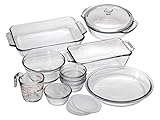


Non-Toxic Cookware - Stainless Steel
That’s a good question. Again, it all boils down (pardon the pun) to how you are using the cookware. For example, if you are keeping something in the oven for a long time or cooking with acidic ingredients like fruit, you may want to use something different. Stainless steel isn’t great for high-temperature cooking, either. The concern lies in nickel and chromium leaching into your food when under these conditions (3).
A great rule of thumb to remember when purchasing stainless steel cookware is to look at the number on the pan. You want to see the number 18, followed by a much lower number like 10 or 8. These numbers represent the amount of chromium and nickel that is in stainless steel.
An even better option is to choose a nickel-free cookware set like HOMI CHEF.
Shop Nickel-Free Cookware on Amazon



Which Type of Non-Toxic Cookware do You Choose?
That largely depends on you and your cooking habits. Each option can be a great and healthy choice if used and cared for properly.
References:
- A. Hessian State Laboratory, Am Versuchsfeld 11, 34128 Kassel, Germany, B. Hessian State Laboratory, Glarusstr. 6, 65203 Wiesbaden, Germany. Migration of aluminum from food contact materials to food—a health risk for consumers? Part III of III: migration of aluminum to food from camping dishes and utensils made of aluminum [Internet]. NCBI, 2017 Apr 12. Available from; https://www.ncbi.nlm.nih.gov/pmc/articles/PMC5388722/
- Department of Epidemiology, School of Public Health, University of California - Los Angeles, PO Box 951772, 71-254 CHS, 650 Charles E. Young Drive South, Los Angeles, CA 90095-1772, USA. [email protected]. Maternal levels of perfluorinated chemicals and subfecundity [Internet]. NCBI, 2009 Jan 28. Available from: https://www.ncbi.nlm.nih.gov/pubmed/19176540
- J Agric Food Chem. Stainless Steel Leaches Nickel and Chromium into Foods During Cooking [Internet]. NCBI, 2015 Jan 5. Available from: https://www.ncbi.nlm.nih.gov/pmc/articles/PMC4284091/


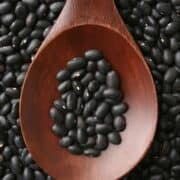
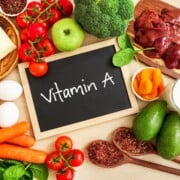
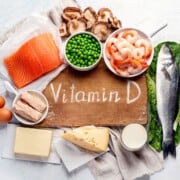

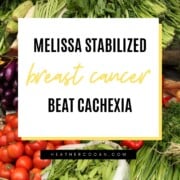
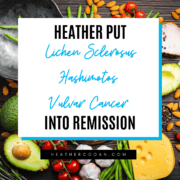
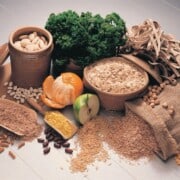

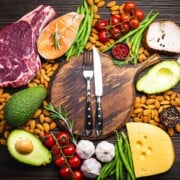


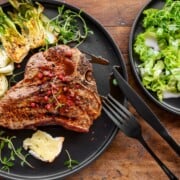




Comments
No Comments